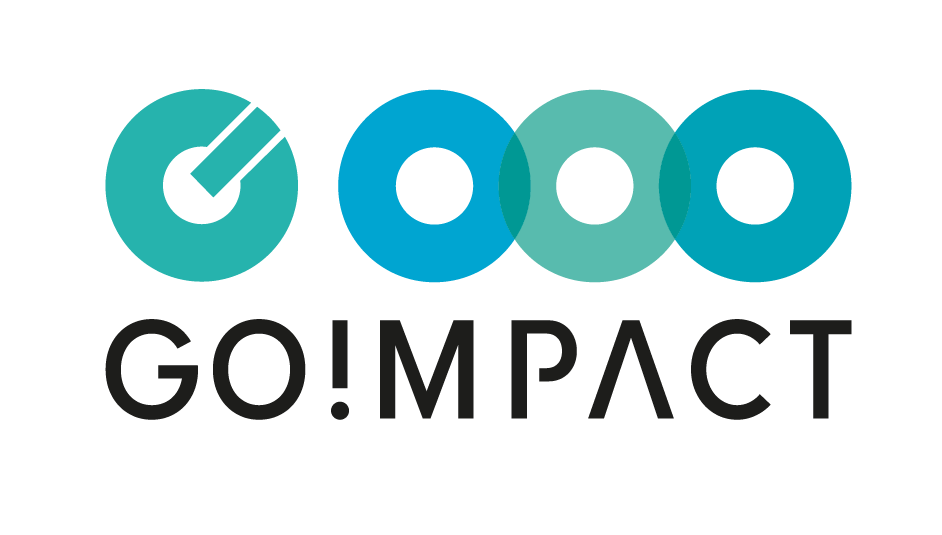Why GoImpact believes that education is the key to promoting ESG investment
Investing in climate tech has become increasingly popular;
GoImpact believes in the importance of making informed decisions.
Anisa Menur A. Maulani
25 July, 2022
This article was first published on May 5, 2022.
In April, GoImpact announced that it has raised a Series A funding round that brought its valuation to US$22 million. Tripling its last funding round, this investment included investors such as Oriental Watch Holdings Limited and a leading Hong Kong-based private investor.
For the Singapore-based company, this investment will enable them to further expand its global footprint, as said by co-founder Andy Ann in a press statement. “The funds we raised will allow an expansion of the team in Hong Kong and around the world. In the future, GoImpact will continue to seek partnerships with leading institutions and organisations to further our influence on a global scale.”
GoImpact is a platform that aims to drive the sustainability agenda forward through three key pillars: education (GoLearn), structured advocacy (GoNetwork), and a deal flow platform for sustainable investments (GoInvest). It was founded in 2020 by finance industry veterans Helene Li and Clarence T’ao as well as serial entrepreneur Andy Ann to bridge the gap between knowledge and investment opportunities through these three activities.
Investing in companies that aim to tackle the challenges brought by climate change has become increasingly popular nowadays, and GoImpact believes in the importance of making informed decisions –the reason why education is the starting point of its user journey.
Its GoLearn platform offers lessons that are structured to align with the 17 United Nations Sustainable Development Goals in five key areas. Within the last two years, it has established an education network consisting of top ESG and industry experts, prominent higher-education institutions, industry bodies, financial institutions, large corporations, and governmental agencies across the Asia Pacific and the Middle East. It has also participated in and co-hosted industry seminars to drive ESG adoption.
To understand more about what GoImpact offers, e27 speaks to CEO & co-founder Helene Li about the company, its mission, and their big plans for the future. Here is an edited excerpt of the interview.
Having had years of experience in the sustainable finance and ESG space, what inspired you to start this platform?
I was a management consultant turned banker. Throughout my banking career, whether with JP Morgan or with BNP Paribas, I have witnessed firsthand the momentum of sustainable finance, and how the capital owners … are actually demanding more and more of their assets be looped into this area, to create a better change, and to be better aligned with their own set of values.
About two years ago, just before COVID-19, we founded GoImpact with a very specific aim: to mainstream the agenda, and to fast-track the acceleration and mainstreaming of the agenda. So it doesn’t get buried in all kinds of talks about philanthropy or NGO activities, [because] it is a mainstream business and finance agenda. Both my co-founders and I are very much in the mainstream finance industry; we have seen firsthand how the momentum has shifted, and in some ways, the gaps.
So, the problem that we are trying to solve is to clear the roadblocks to mainstream and accelerate the agenda. And I think education is at the heart of these roadblocks. Because if you are less informed, or ill-informed about something, you are not likely to invest very much into that. So, having a good basic, fundamental understanding of what sustainable finance is all about, and what it can do for the companies, is important.
Like, here in Singapore, the SG Green Plan 2030 is very much something that Singapore corporations are subscribing to, and all the ministries are aligning to drive that. And it’s an important agenda. But do people have a thorough understanding of all that, and what it means to them as a citizen, as a company, as an investor? Maybe not. Maybe there are still gaps to be resolved. And that’s exactly the areas that we are playing at.
How does the pandemic impact the public’s interest in ESG investing?
Very much so. The silver linings of the pandemic are that it serves two things. First, as a disruptor, it exposes all the problems and cracks that we have in the system, be it in the supply chain, our over-reliance on certain ways to generate energy or food supply.
The second thing is that it is also an accelerator. It has put sustainability and sustainable finance on the front and centre stage.
If you are already investing in this sector, chances are you will try to weigh in more with your assets in the way you would construct your portfolio. So, yes, it has been an accelerator and a disruptor.
So what are the advantages of learning about sustainable finance through GoLearn compared to other sources?
I think it’s very important to note that we are playing very hard at a specific area that moves the needle significantly. So we don’t play at, for example, undergrad programmes or secondary school programmes, because we want to equip and educate the executives. People who are in a position to make decisions for the company, who are in a position to make investment decisions.
What we really want is to translate many of the talks into action. That’s far easier said than done … because we want to move the needle and play at executive education, all our programmes are very much expert-led and case-based. Executives learn through use cases. What has been done? What are some of the examples that are relevant and relatable to their specific industries?
In Singapore, we partner with the Singapore Management University which is the main institution that drives green finance learning in the country. SG FC –the Singapore Green Finance Centre– which is funded by MAS is being housed there. Our programmes at SMU have met with a lot of success. We were fully booked until the first half of 2023.
Who are your target audiences? And what is your user acquisition strategy?
We do a complete B2B2C. We partner with platforms such as the SMU Gear which has already a captive audience looking for programmes like that.
One of our major aims is to accelerate the agenda; we are all running against time to drive towards net-zero or to make the world a slightly more sustainable place. Not just for our generation, but for the next generation to come.
This is why being able to drive the business model faster, for us, is more important than just optimising on the profit. I see that very much as our business model. And that has paid off very well. It has also attracted the eyes of a lot of investors.
So, what will be the company’s big agenda for this year?
This year … we aim to deepen and consolidate [our existing partnership] while also trying to move towards a more asynchronous delivery [of learning]. This will actually be the real accelerator.
In terms of our mission, and in terms of the growth of the company, the way we see it is that … our solution is meeting a very good timing. It’s a very practical and comprehensive … because if you look at it, sustainability and sustainable finance are actually very broad. It is not just about carbon. It is not just about water. It is much broader than that.
I think the breadth as well as the depth of our offering really echoes and hits a sweet spot in the market. And we have been enjoying the results of that. We intend to consolidate that and move towards the asynchronous to grow even faster and to deliver a better return for our A round investors … as we are poised to ticket forward to another round maybe later in the year.

